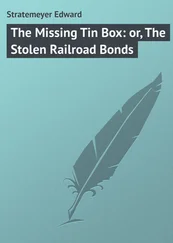Edward Stratemeyer - Fighting in Cuban Waters - or, Under Schley on the Brooklyn
Здесь есть возможность читать онлайн «Edward Stratemeyer - Fighting in Cuban Waters - or, Under Schley on the Brooklyn» — ознакомительный отрывок электронной книги совершенно бесплатно, а после прочтения отрывка купить полную версию. В некоторых случаях можно слушать аудио, скачать через торрент в формате fb2 и присутствует краткое содержание. Жанр: foreign_prose, foreign_children, на английском языке. Описание произведения, (предисловие) а так же отзывы посетителей доступны на портале библиотеки ЛибКат.
- Название:Fighting in Cuban Waters: or, Under Schley on the Brooklyn
- Автор:
- Жанр:
- Год:неизвестен
- ISBN:нет данных
- Рейтинг книги:5 / 5. Голосов: 1
-
Избранное:Добавить в избранное
- Отзывы:
-
Ваша оценка:
- 100
- 1
- 2
- 3
- 4
- 5
Fighting in Cuban Waters: or, Under Schley on the Brooklyn: краткое содержание, описание и аннотация
Предлагаем к чтению аннотацию, описание, краткое содержание или предисловие (зависит от того, что написал сам автор книги «Fighting in Cuban Waters: or, Under Schley on the Brooklyn»). Если вы не нашли необходимую информацию о книге — напишите в комментариях, мы постараемся отыскать её.
Fighting in Cuban Waters: or, Under Schley on the Brooklyn — читать онлайн ознакомительный отрывок
Ниже представлен текст книги, разбитый по страницам. Система сохранения места последней прочитанной страницы, позволяет с удобством читать онлайн бесплатно книгу «Fighting in Cuban Waters: or, Under Schley on the Brooklyn», без необходимости каждый раз заново искать на чём Вы остановились. Поставьте закладку, и сможете в любой момент перейти на страницу, на которой закончили чтение.
Интервал:
Закладка:
As soon as the blockading of the ports mentioned began, the President called for volunteers, and how nobly all our states responded we have already learned in "A Young Volunteer in Cuba." The regular army was also hurried to the south-east and concentrated at Tampa and other points, while the volunteers remained in their various state camps, waiting to be mustered into the United States service. Of the grand movement to Cuba we shall hear later.
The news of Commodore Dewey's glorious victory, as related in "Under Dewey at Manila" thrilled our people as they had not been thrilled for years. In the army and the navy were men from both the North and the South, and sectionalism was now wiped out forever, and all stood shoulder to shoulder under Old Glory, fighting for the sake of Humanity. The battle-cries were "Free Cuba!" and "Remember the Maine !" and certainly none could have been more inspiring.
The blockading of so long a coast line required a great many warships, and as it was not deemed advisable to place all our big vessels on this duty, the authorities lost no time in buying or leasing a number of ocean steamers and coast craft and converting them into vessels of war. These vessels required a great number of men, and the Naval Reserves were in great demand, as were also volunteers for the regular navy. This was the reason that Walter and those with him were taken on so quickly. Had he applied for enlistment into the navy during times of peace, he would have found an entrance far more difficult, for Uncle Sam is growing more and more particular every day as to the class of men he allows to tread the decks of his men-o'-war.
Shortly after Havana and its neighboring ports were blockaded, it was rumored that Spain would send over a powerful fleet to bombard New York or some other principal city along our eastern seacoast. This caused a good deal of uneasiness, and steps were immediately taken to fortify all principal points and mine many of the harbor entrances. Patrol boats were also placed on duty, to give the alarm at the first sight of an enemy. In some cases channel buoys were removed, and lighthouse lamps were left unlit, so that no Spanish vessel might creep in under cover of darkness.
Acting Rear-Admiral Sampson, as he was officially designated, was kept busy watching the blockade along the northern coast of Cuba, and in distributing his auxiliary vessels to such points as would be most advantageous. This being the case, Commodore Schley, next in command, was left at Hampton Roads, near Fortress Monroe, Virginia, with what was known as the Flying Squadron, a number of the fastest warships riding the Atlantic. The Flying Squadron was to wait until the Spanish fleet started westward, when it was to do its best toward doing as Dewey had done to Montojo's fleet, "find it and engage it"; in plain words, to fight it to the bitter end. Great things were expected of the Flying Squadron, and in this the people were not to be disappointed, as we shall see.
The trip by rail from Boston to the South proved full of interest to Walter, who loved riding on the cars. So far two transfers had been made, one at New York, and the other at Baltimore, but at neither city was any time allowed for seeing the sights. "It's a case of get there," explained Caleb Walton. "You see, that Spanish fleet may sail for the United States at any moment, and then Schley will be bound to go out on a hunt for it in double-quick order."
"I see that the Spanish Cape Verde Squadron has joined the fleet at Cadiz, which is ready for sea," observed Walter, pointing to a morning newspaper he had purchased on the train. "There are four first-class cruisers, the Viscaya , the Almirante Oquendo , the Infanta Maria Teresa , and the Cristobal Colon , besides two or three torpedo-boat destroyers. At Cadiz there are the Pelaya , Alfonso XIII. , and several other ships. If they all come over here, it seems to me they may make matters mighty warm for us."
"We want 'em warm," interrupted Si Doring. "I wouldn't give a rap for a milk-and-water battle. Let us have it hot, say I, hot, – and knock the Spanish to kingdom come!"
"They won't dare to send all of the ships over," said Caleb Walton. "They must guard their own coast. If they don't, some of our ships may slip over there and make it interesting for them."
"Do you think we'll carry the war to Spain?" asked Walter, with deep interest.
"There is no telling, lad. Some folks have it that half of Europe will be mixed up in this muss before it's over. One thing is certain, Dewey's victory at Manila isn't going to be such a smooth thing out there, for the Filipinos are in a state of revolt and won't want us to govern them any more than they want the Spanish; and besides, Germany, France, and other nations have big interests there."
"Well, I guess the best we can do is to look out for our little end," smiled the boy. "As for the rest, the authorities at Washington must settle that."
"Well said, lad; you and I couldn't run the government if we tried. But we can do our duty, and that will be to obey orders and take what comes."
"How is it that you got Jim Haskett to enlist?" asked Si.
"Oh, that fellow is after prize money," was the gunner's reply. "He has been reading of the luck down around Havana, and he wants the chance to earn a few hundred extra. Well, maybe he'll get it."
"I've heard of prize money before, but I don't exactly know what it is," observed Walter.
"It's the money got out of a captured ship when she's sold. You see, when a ship is captured she's taken to some port and turned over to a prize court, and if she doesn't turn out a Scotch prize she is knocked down under the hammer."
"I know what you mean by knocking her down under the hammer. But why doesn't the rule apply to a Scotch vessel?"
At this query of Walter's Caleb Walton burst into a roar of laughter. "It's easy to see you're a landsman," he said. "I didn't say a Scotch vessel; I said a Scotch prize – a ship captured illegally, and one that must be given back to her owners. I don't know where that term came from, but it's what the men in the navy always use."
"I see."
"A legitimate prize is sold, and then the money is divided. If the vessel captured was the equal of that taking her, then all the prize money goes to her captain and crew; but if the captured ship is inferior, then her takers get only half of the money, and Uncle Sam keeps the balance."
"And what part would I get if my ship took a prize?" went on Walter, more interested than ever, for the question of prize money had not appealed to him before.
"You would get a share according to your regular pay – perhaps one dollar out of every five or ten thousand."
"That wouldn't be much – on a small craft."
"You are right, lad, but it would be a tidy amount on a big warship worth two or three millions. The division of the prize money is regulated according to law, so there can't be any quarrelling. The commander of a fleet gets one-twentieth, the commander of a ship one-tenth of that coming to his ship (when there are more ships than one interested in the prize), and so on, and we all get our money even if we are on temporary leave of absence."
"But what does Uncle Sam do with his share?" put in Si.
"His share is put into a fund that is used toward paying naval officers, seamen, and marines the pensions due them. These pensions are, of course, not as large as those of the army, but they are considerable."
"Well, I hope we strike a big prize, or half a dozen little ones," said Walter. "On a pay of eleven dollars a month a fellow can't expect to get very rich."
"Do your duty, lad, and you may rise before the war is over." The old gunner caught Walter by the arm. "Come with me," and Caleb Walton arose, and led the way to the smoking-car. Wondering what was meant by this movement, Walter followed.
Читать дальшеИнтервал:
Закладка:
Похожие книги на «Fighting in Cuban Waters: or, Under Schley on the Brooklyn»
Представляем Вашему вниманию похожие книги на «Fighting in Cuban Waters: or, Under Schley on the Brooklyn» списком для выбора. Мы отобрали схожую по названию и смыслу литературу в надежде предоставить читателям больше вариантов отыскать новые, интересные, ещё непрочитанные произведения.
Обсуждение, отзывы о книге «Fighting in Cuban Waters: or, Under Schley on the Brooklyn» и просто собственные мнения читателей. Оставьте ваши комментарии, напишите, что Вы думаете о произведении, его смысле или главных героях. Укажите что конкретно понравилось, а что нет, и почему Вы так считаете.












